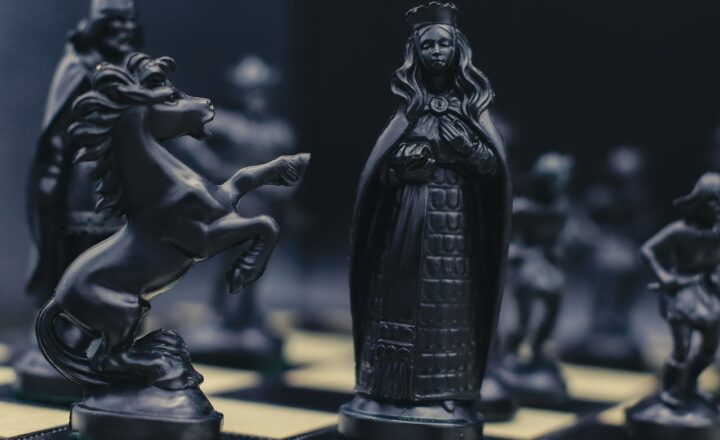The Role of Secret Societies in Some of History’s Greatest Events
November 18, 2024

Secret societies have long fascinated historians, conspiracy theorists, and the general public alike. Often shrouded in mystery, these organizations have been implicated in shaping some of history’s most critical events, from political revolutions to cultural movements. In this article, we will explore the roles that secret societies have played throughout history, examining their influence, motivations, and the legacies they have left behind.
1. What Are Secret Societies?
Secret societies are organizations that operate clandestinely, often with initiation rituals, a hierarchical structure, and exclusive membership. These groups sometimes claim to possess special knowledge or skills, which differentiates them from the broader public. They often communicate through codes and symbols, further deepening the intrigue surrounding their activities.
Some of the most well-known secret societies include:
- Freemasons: Founded in the late 16th to early 17th century, Freemasonry is perhaps the most famous secret society, known for its iconic symbols such as the square and compasses.
- The Illuminati: Founded in 1776 in Bavaria, the Illuminati sought to promote Enlightenment ideals and oppose religious and political oppression.
This group is often associated with conspiracy theories regarding global domination. - Skull and Bones: Established in 1832 at Yale University, this society is infamous for its elite membership, including several U.S. presidents and influential political figures.
The motivations behind these groups can vary widely, including the desire for social networking, political influence, or the promotion of specific ideologies.
2. A Brief History of Prominent Secret Societies
Throughout history, various secret societies have emerged, each leaving a unique mark on the socio-political landscape. Here are a few notable examples:
2.1. The Freemasons:
The Freemasons trace their origins back to the stonemason guilds of the Middle Ages. Formed in the early 1700s in England, this society emphasized moral and ethical development, using architectural symbolism to convey their teachings. Freemasonry played a significant role in the American Revolution, with many founding fathers such as George Washington and Benjamin Franklin as members. Their ideals of liberty and fraternity greatly influenced the establishment of democratic principles.
2.2. The Illuminati:
Founded in 1776 by Adam Weishaupt in Bavaria, the Illuminati aimed to promote rational thought through the Enlightenment philosophy. Although it was banned shortly after its inception, rumors of its resurgence have persisted, often claiming it controls world affairs from the shadows. Many believe that members of this society played a part in the French Revolution, subtly steering the tides of rebellion.
2.3. The Rosicrucians:
Emerging in the early 17th century, the Rosicrucians claimed to possess ancient wisdom regarding the mysteries of life. This society combined elements of mysticism, occult knowledge, and science. Their influence extended into the fields of art and philosophy, with connections to figures like Goethe and Newton. They were instrumental in fostering a climate of intellectual and spiritual inquiry during the Renaissance.
3. Secret Societies and Political Events
A major aspect of secret societies has been their involvement in significant political events. Their shadowy nature often lends itself to speculation regarding their involvement in covert actions and influence over public affairs.
3.1. The French Revolution:
Many historians argue that the Illuminati’s ideals fueled the French Revolution. The Revolutionary leaders, inspired by concepts of equality, liberty, and fraternity, may have communicated through the networks created by the Illuminati and similar societies. The radical changes that swept through France during this period can be partially traced back to the philosophies espoused by these secret groups.
3.2. The American Revolution:
As previously mentioned, several founding fathers were Freemasons. The society’s ideals played a role in inspiring the push for independence from British rule. Freemasonry provided critical support networks that organized resistance against tyranny, and its members were at the forefront of crafting a new government built on democratic principles.
3.3. The Influence on the New World Order:
The concept of a “New World Order” has been a recurrent theme in discussions around secret societies, particularly in the context of global governance. Many conspiracy theories allege that organizations such as the Illuminati aim to create a one-world government. While often more fiction than fact, these theories reveal the public’s anxiety surrounding concentrated power and hidden agendas.
4. The Impact of Secret Societies in Culture and Society
Secret societies have not only influenced political events but have also left enduring marks on culture and social structures.
4.1. Art and Literature:
Numerous literary and artistic works feature secret societies as central themes. For instance, Dan Brown’s novels, particularly *The Da Vinci Code*, delve into the world of secret organizations, presenting an intersection of history, mythology, and theology. This fascination with secret societies in pop culture reveals public intrigue and the human desire to understand the unexplained.
4.2. Social Constructs and Class Structures:
Membership in secret societies has historically been a marker of social status and influence. For instance, being part of exclusive organizations such as Skull and Bones reinforces elite social networks and can aid political and business ambitions. Secret societies often operate as gateways to opportunities, illustrating the role of exclusivity in societal structures.
4.3. Modern Perception of Secret Societies:
Today, public perception of secret societies is a mixture of fascination and skepticism. With the rise of the internet, conspiracy theories have proliferated, allowing individuals to delve into the lore surrounding these groups. However, historical context is vital when evaluating claims; many theories often lack substantiation and are fueled by misinformation.
5. The Future of Secret Societies
As society evolves, so do secret societies. Although many traditional organizations have experienced decline due to changing social norms, new forms of secretive organizations arise, often leveraging technology and globalization. Social media has enabled new avenues for networking and the fostering of exclusive ideologies.
The future of secret societies remains uncertain, yet their ability to adapt could ensure their continued relevance in contemporary culture. Understanding their historical context will be key to disentangling fact from fiction as modern conspiracies evolve.
Conclusion
Secret societies have played pivotal roles in some of history’s greatest events, shaping political theories, revolutions, and cultural narratives. While they will continue to intrigue and inspire speculation, critical analysis is essential in distinguishing fact from myth. By studying the documented influence of these organizations, we gain a deeper understanding of the forces that have shaped our world and may continue to do so around the globe.
As we delve deeper into these secretive realms, whether out of curiosity or critical discernment, we can learn much about power, influence, and the human experience throughout the eras.








